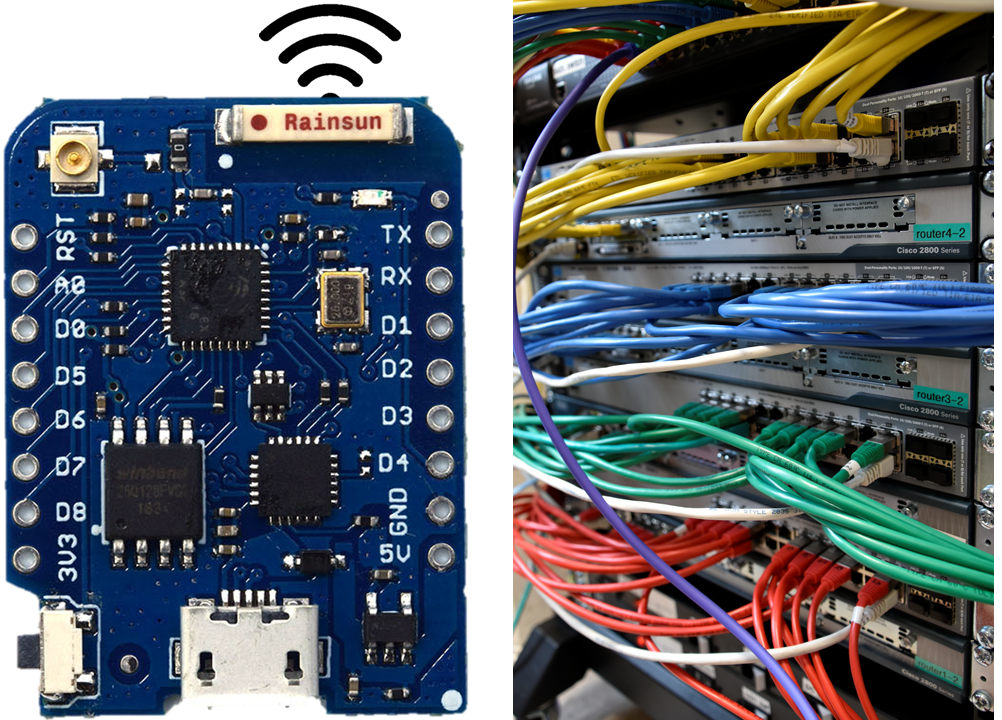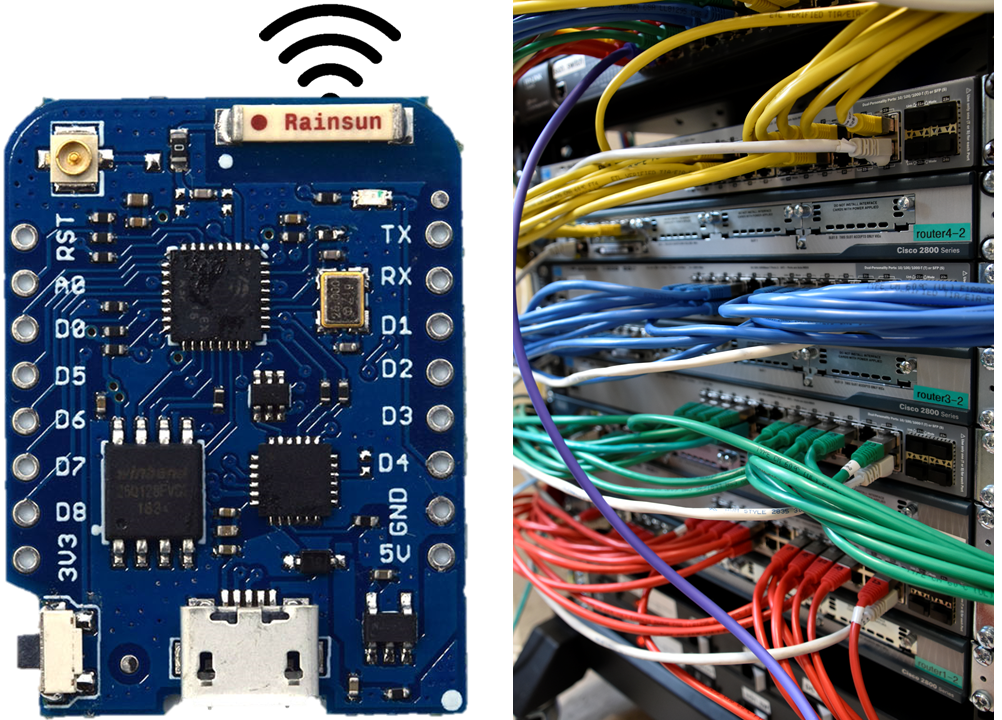
Details
| Type of course | Lecture (2 SWS) + exercises (2 SWS) |
| ECTS credits | 2,5 + 2,5 |
| Language | English |
| Lecture | Tuesday, 04:00 pm – 05:30 pm, room 04.137-113 UnivIS |
| Exercises | Wednesday, 10:15 am – 11:45 pm, room 04.158-113 UnivIS Wednesday, 02:15 pm – 03:45 pm, room 04.158-113 UnivIS Thursday, 04:00 pm – 05:30 pm, room 04.158-113 UnivIS |
Due to the demands of big data, cloud computing, Internet-of-Things (IoT) and mobile devices, new architectures for computer networks have evolved: Software Defined Networking (SDN) decouples the data plane (packet forwarding, on commodity hardware) from the control plane (control functions, on high performance servers) and offers open programming interfaces. Network Functions Virtualization (NFV) extends existing concepts for server and network virtualization. This allows network functions (like, e.g., routing) that have traditionally been executed on proprietary hardware to be virtualized and executed on commercial off-the-shelf hardware. This lecture offers an introduction to these new technologies, concepts and standards and provides insight into their application in data centers, for fog and cloud computing and for IoT applications.
Understanding
- The students learn to understand the basic concepts of
- Software Defined Networking
- Network Function Virtualization
- Internet of Things
- Cloud Computing
Application
- The students learn to apply the knowledge in assignments in labs.
Creating
- The students create own configurations in the lab for
- Software Defined Networking
- Internet of Things
William Stallings: Foundations of Modern Networking – SDN, QoE, IoT, and Cloud; Pearson
Lecture Slides
- 15.10.2019: Contents and Organization (slides)
Introduction (slides) - 22.10.2019: Internet of Things – Concept (slides)
- 29.10.2019: Internet of Things – Protocols I (slides)
- 05.11.2019: Internet of Things – Protocols II (slides)
- 12.11.2019: Internet of Things – Zero-Configuration Networking (slides)
- 19.11.2019: Internet of Things – Technology I: LoRaWAN (slides)
- 26.11.2019: Internet of Things – Technology II: Bluetooth Low Energy (slides)
- 03.12.2019: Internet of Things – Technology III: SigFox, IEEE 802.15.4, 6LoWPAN, cellular, … (slides)
- 10.12.2019: Software Defined Networking: Introduction (slides)
Software Defined Networking: Data Plane and OpenFlow (slides) - 10.12.2019: Software Defined Networking: Control Plane (slides)
- 07.01.2020: Software Defined Networking: Application Plane (slides)
- 14.01.2020: Network Functions Virtualization: Concepts and Architecture (slides)
- 21.01.2020: Network Functions Virtualization: Functionality (slides)
- 28.01.2020: Network Functions Virtualization: Functionality (contd.)
Exercises
The exercise class will take place on Thursday, 04:00 pm – 05:30 pm. If there is not enough space, further time slots will be added.
Sign up for the exercise classes until 15.10.2019 08:00 p.m. via EST. The exercise classes (tutorials) are assigned later.
Exercise Downloads
- CW 42: No exercise classes
- CW 43: Organization, IoT Network overview, ESP32 intro/IDE/programming (slides); Assignment 1 due to 31.10.2019 8am
- CW 44: ESP: I/O, libraries (slides); Assignment 2 due to 07.11.2019 8am
- CW 45: MQTT (slides); Assignment 3 due to 14.11.2019 8am
- CW 46: Node-RED, environment sensor (slides); Assignment 4 due to 21.11.2019 8am
- CW 47: Time Series Database Management Systems (slides); Assignment 5 due to 28.11.2019 8am
- CW 48: LoRaWAN open protocol, TTN, GPS (slides); Assignment 6, esp32imstttn-template.ino due to 19.12.2019 8am
- Assignment 7 due to 07.02.2020 8am
- CW 49: Supervised project work
- CW 50: Supervised project work
- CW 51: LoRa Technology (slides); Assignment 8 due to 09.01.2020 8am
- CW 52+1: Christmas / New Year break
- CW 2: SDN controller configuration (slides); Assignment 9 due on 16.01.2020 8am
- CW 3: SDN get device information (slides); Assignment 10 due on 23.01.2020 8am
- CW 4: SDN configure flows; Assignment 11 due on 30.01.2020 8am
- CW 5: SDN intents; Assignment 12 due on 06.02.2020 8am

